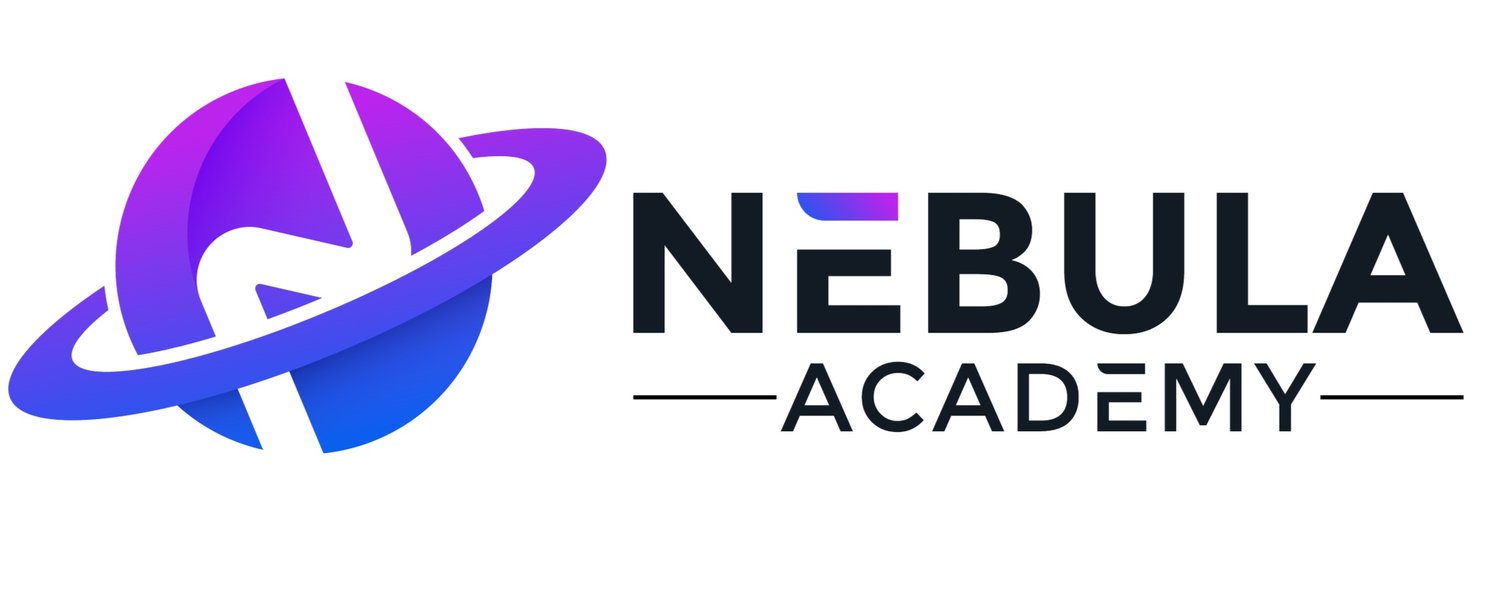LEARNING FAST (IN THE SOFTWARE DEVELOPMENT FIELD)
Abe Johnson
Hi my name is Abe I recently took on the role of software engineering instructor at Nebula Academy. I’m a person who spends a large portion of my time, effort & mental energy on self-improvement.
What that ultimately comes down to is that I've spent a lot of time trying to understand the process of "getting good". And in this article I'm going to explain to you two concepts you probably understand at least subconsciously:
Practice will lead to mastery of a skill
Groundbreaking stuff really. If you practice at something you'll get better, but it’s a necessary tenant to build the premise for part 2:
Not all practice is valuable
This is the concept I will be diving into in this blog.
I want you to envision a skill or hobby that you’ve been working to master. Now I’m going to give you 4 options:
A. Everyday you start regressing at that skill
B. Everyday you improve slowly or not at all at that skill
C. Everyday you randomly improve or regress at the skill
D. Everyday you consistently rapidly improve at the skill
If you didn’t pick D you should just alt + f4 this article because it will be a waste of your time.
Sane readers, let me bring you to the actual main point of this blog by introducing you to Jim Kwik he’s an Asian man who’s really good at math. Especially Memorization. What makes this guy so particularly interesting is the fact that this was not always the case.
When Jim was young he was dropped on his head. He overnight went from a vibrant 8 year old to a very developmentally challenged child who struggled to even finish high school. And upon nearly failing out of his freshman year in college Kwik re-prioritize himself to spend less time “learning” and more time learning “how to learn”.
Over the next 2 decades Kwik would go on to be an extremely important figure in our understanding of how memory works and how to learn efficiently. He developed methods of training your brain and memory that are so effective and efficient. If you give any single video a chance you’ll become upset at the primate style of learning they taught you in the classroom. Learning is a chemical process and you can force your brain to stimulate itself so that you never forget anything!!!
If that sounds good to you then in this blog I wanted to signal boost these excellent meta-learning principles and teach you how to learn things FAST. (In the software development field)
F-ORGET
Kwik really loves emphasizing how important the beginner's mind is. It is important to make your mind as malleable as possible. To reach your maximum learning potential you really have to embrace the fact that every second of every present presents you with an opportunity to learn.
Additionally you must free your mind from all your presumptions. If you think coding will be too hard for you; spoiler alert it will be. And on the other side of the spectrum I often see people who are very quick to chime in with a “I know… x y and z”.
Both are EXTREMELY toxic towards an efficient learning system. When you have an internal monologue playing, how could you have the mental energy to play with any new ideas that will be coming your way? And when your brain is filled with what is, you have no space for what could be.
So to get us back to the beginner mentality you must forget. Forget about any assumptions you had about the task at hand. Forget about all your other distractions. Forget about trying to multitask. Forget about your aspirations about what the goal could do for you. Forget how much time, effort, money, you’ve invested into this task. All of these are distractions that take you mentally out of what you're trying to do.
Now that we’ve forgotten how to waste time, let's actually take steps towards our goals.
A-CTIVE
It’s nice to have dreams, but without actual work nothing will get done. You have to make time to get things done. CONSISTENTLY.
Anyone who’s been in a class with me knows that I am a sucker for a good metaphor or analogy. I often compare topics like learning how to code to things some of the students may have had experience working with.
I find this helps a lot because many coding concepts can be abstract or theoretical and giving you a reference of something more physical really helps illustrate the point.
I included these paragraphs into this blog to introduce you to why I’d be comparing the learning skills in the software development field to lifting weights to become a bodybuilder.
You could spend the next 10 years watching videos and reading books and articles on how to obtain the perfect technique to get the most optimal bar path.
But it's IMPOSSIBLE to become a bodybuilder without lifting the weights. They just showed up everyday to lift the weights. It's really that simple.
When intent meets action you will start to see results. But the action is meaningless without the goals which brings me to point number 3:
S-TATE
The first two principals are the main drivers of progress, especially when you’re motivated. But the thing about motivation is it is an emotion and like all feelings they are fleeting. In order to become successful you must forgo the unstable feelings of motivation and trade them in for self-discipline. This is easier for some than others. Some people have childhood trauma that causes them physical ailments when they do not overachieve. For the rest of the balanced healthy society it’s going to be hard to compete with those people.
This is where Kwiks Principal of State comes into play. When your getting burnt out on a project, or think what your doing is dumb and has no purpose, or maybe you think your too stupid to understand the material.
All of these are your ego self sabotaging yourself from greatness. Kwik has a very simple but effective trick for dealing with these mental hurdles. You need to have a dialogue with yourself “Why am I doing this? Why is this important to me? What am I trying to achieve from working this hard?”
A lot of coding is working a maze backwards. If you know your destination it's pretty trivial to plan a route. The real problem begins when you don’t know what you're even trying to achieve.
I’ve found that life works in a similar way. For me I know every morning I wake up and affirm that I want to build a career for myself that will ensure that my family and I are completely comfortable. Any time I'm lacking in discipline I can just go down this already wired path in my brain that instantly fills me with determination.
And the craziest thing of all is that when you allow yourself to invoke those feelings during your learning process you will retain information at a significantly increased pace.
Don’t believe me? Pick from these two questions and tell me which was easier to remember:
What did you have for lunch 2 days ago? What is the largest inconvenience you have had to face this week?
For most, unless your lunch had some significant importance, it will obviously be the second one. When you allow yourself to not punish yourself for feeling, but instead look to anchor your feelings to experiences you’ll start remembering things at such an elite level you’ll begin to scare yourself.
T-EACH
Which brings us to the final principal of this grossly over-scoped blog post. Kwik describes this as THE most important of all these principals and I’m somewhat inclined to agree with him. I find teaching to be one of the most greedy & efficient methods of learning.
People always see teaching as some selfless act because of the terrible financial incentives. However despite that there are always people getting into the teaching field and as a profession they rate very high on a scale of self-actualization.
This is all fine and dandy but what does it have to do with learning?
When you teach you get the ability to learn twice. The first time is by yourself trying to gain a deeper knowledge on a topic that you’re going to teach. Then you are blessed to be able to learn once more during teaching.
When teaching you’re going to come across all types of issues you just never even considered to be a possibility. The stimuli of bringing ideas that are foreign to your brain and maybe even foreign to other traditional ideas in your brain is going to force you to learn at a rate you didn’t even think possible.
That is all for today. If you read all the way to this point I really applaud you, but also question your mental health a bit.
If for some reason you want to get more meta about your learning, Kwik has an amazing mini-podcast filled with techniques similar to these.
https://podcasts.apple.com/us/podcast/kwik-brain-with-jim-kwik/id1208024744
Or his website: https://jimkwik.com/
Or his YouTube channel: https://www.youtube.com/watch?v=0r1LTe5KkSA


